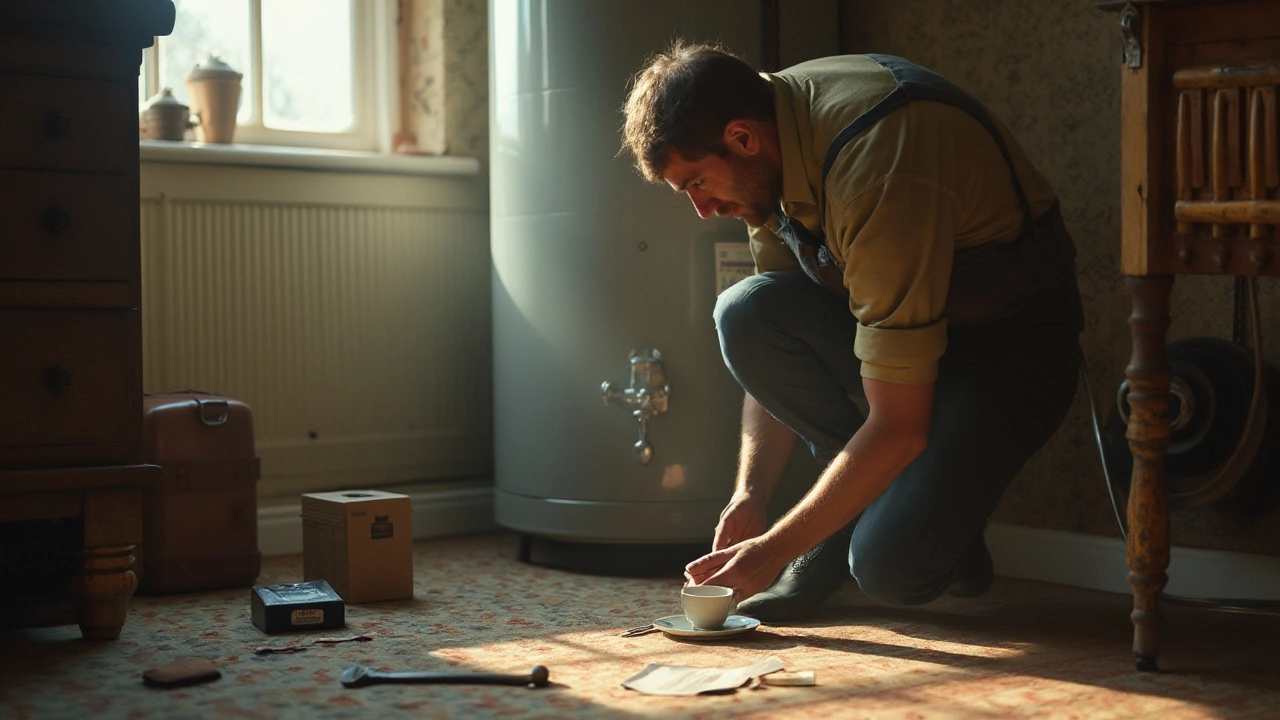Home Plumbing: Simple Fixes and Pro Advice You Can Use Today
Got a drip, a slow drain, or a noisy pipe? You don’t need to call a plumber for every little thing. Most household plumbing issues can be tackled with a few basic tools and a bit of know‑how. This guide walks you through the most common problems, shows you how to fix them, and tells you when it’s time to call in the pros.
Stop Leaks Fast – The Basics
The first thing to do when you spot a leak is to turn off the water supply. Look for the shut‑off valve under the sink or on the wall near the affected fixture. If you can’t find it, the main valve in the basement or utility cupboard will do the trick. Once the water is off, dry the area with a towel so you can see exactly where the water is coming from.
Most drips are caused by a worn‑out washer or a loose connection. Unscrew the faucet handle, pull out the cartridge, and replace the rubber washer – a cheap part that solves the problem in minutes. If the joint is leaking, tighten it with a wrench, but be careful not to over‑tighten and crack the pipe.
For pipe leaks in the wall, you’ll need a short‑term fix until a professional can replace the damaged section. Wrap the leak with self‑adhesive pipe repair tape, then cover it with a pipe clamp. This stops the water long enough to prevent damage while you arrange a proper repair.
Unclog Drains Without Harsh Chemicals
When a sink or shower drain slows to a crawl, reach for a plunger first. Fill the basin with a little water, place the plunger over the drain, and push down firmly several times. The pressure often dislodges the blockage without any mess.
If the plunger doesn’t work, try a homemade drain snake. Straighten a wire coat hanger, bend a small hook on the end, and fish the hair or debris out of the pipe. Push the hook in gently, twist, and pull it out. You’ll be surprised how much debris a simple hook can grab.
For tougher clogs, pour a cup of baking soda followed by a cup of vinegar down the drain. Let it fizz for 15 minutes, then rinse with hot water. The natural reaction breaks down grease and soap scum without the harsh fumes of commercial chemicals.
Remember, if the water backs up from multiple fixtures at once, you probably have a main line blockage. That’s a job for a licensed plumber – attempting to fix it yourself can cause more damage.
These quick fixes cover the majority of everyday plumbing hiccups. Keep a basic toolkit – pliers, adjustable wrench, pipe tape, and a small flashlight – in your kitchen cabinet. When you catch a leak early or keep drains clear, you’ll save time, money, and a lot of headaches.
If you ever feel unsure, or the problem involves the main water line, gas, or a major pipe replacement, don’t hesitate to call a professional. A quick call can prevent a small issue from turning into a costly disaster.
With these tips in hand, you’ll feel more confident tackling home plumbing chores. A little know‑how goes a long way toward keeping your house running smoothly.

Common Water Heater Leak Locations and Repair Tips
Discover the most common areas where water heaters tend to leak and learn useful tips for identifying and repairing these issues. This guide offers insight into the causes of leaks, preventive measures, and when to seek professional help. It includes practical advice for maintaining a water heater and ensuring its long-term efficiency. Explore the importance of regular inspection and maintenance to avoid costly repairs and water damage.